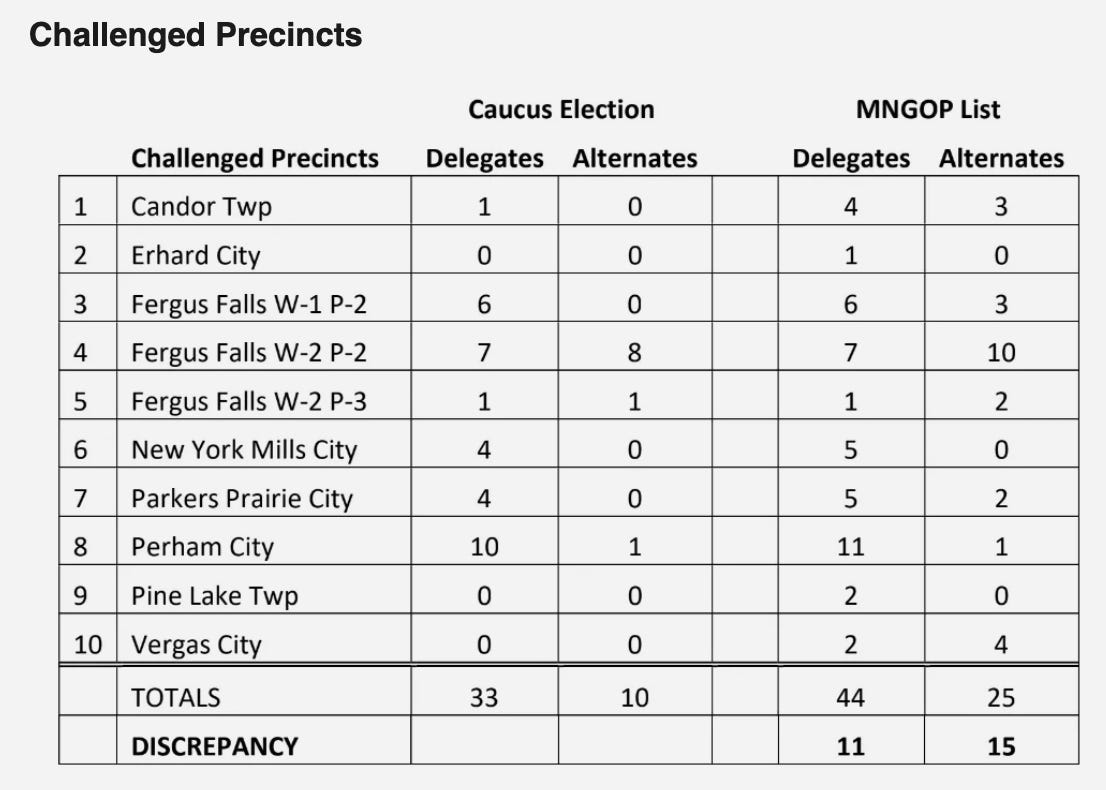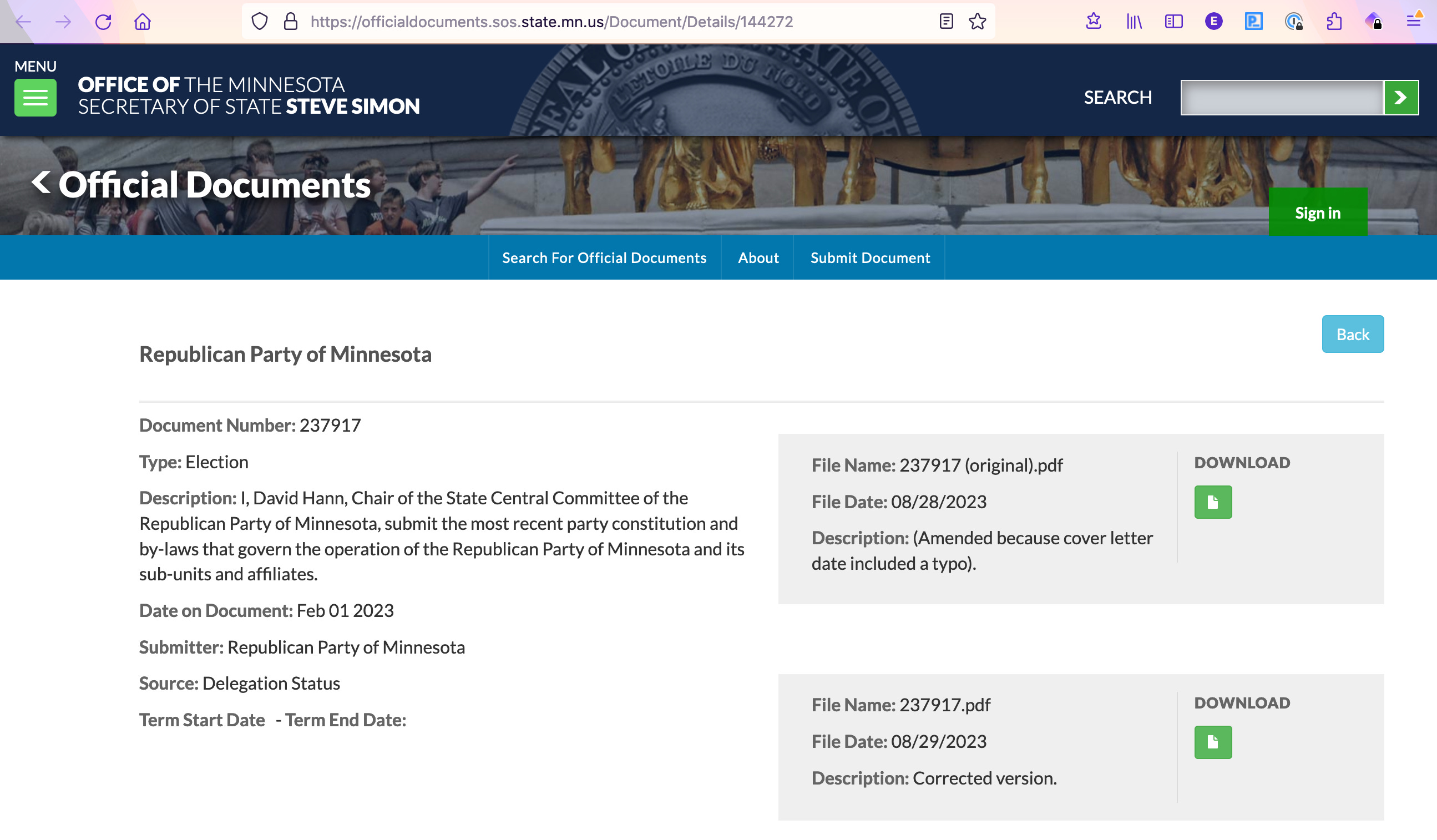Bait & Switch in Politics
Article first published on Project Minnesota - read article here.
On February 1st, 2022 I attended my first precinct caucus at the local basic political organizing unit (BPOU) for the Republican Party of Minnesota. There, the five people at my table were all elected BPOU delegates, even the one wearing a face covering. In a subsequent meeting, I was one of 11 people in the BPOU (a meeting attended by around 35 people) to become state delegates. (These state delegate elections are in even-numbered years, with the state central delegate elections in odd-numbered years.)
The same process occurred for the major parties all across Minnesota.
Now, would you have been surprised if the people who you voted for at either the first or the second meeting, who clearly received more votes than others, and were therefore duly elected, somehow ended up being removed as delegates after the fact?
Me too.
Well, that’s exactly what happened in Otter Tail, where “the reported delegations from numerous precincts appear to have been changed in a manner inconsistent with the Precinct Caucus Record and Certificate of Elections (PCRC’s) certified on February 1st, 2022.” (Save Minnesota article.) This later led to Nathan Miller running in the primary and again in the midterm election of 2022 against the beneficiary of the fraud, wherein Miller received perhaps the highest proportion of votes as a write-in candidate in Minnesota history (8.1%).

The election fraud was admitted to in a phone call by a well known member of the Republican Party but accountability was side-stepped.
In other words, the law was broken and there has been no correction to those delegates being disenfranchised despite it being admitted to by a member of the Party with access to the Party leadership.
This is only a fraction of the story, but it is a part that perhaps not enough other delegates in the Republican Party know about by virtue of the leadership being virtually non-responsive to the issue. What issue is that? Election fraud committed by members the Republican Party against duly elected delegates.
Is this why the Minnesota Republican Party has so far not substantially criticized obvious election fraud in 2020 and 2022? Maybe. Because to do so would put them in the not enviable position of being hypocrites.
What does compliance look like?
The story above, a clear violation of the law, which directly affects who is on the ballot and the outcomes of local and statewide elections, is just one of several areas where the Republican Party is out of compliance with a newly passed law—Minnesota Statute 200.02—wherein a major political party must be in compliance with its own constitution and rules and be certifiably so.
Why does this matter? This new law could be used to remove the Minnesota Republican Party as a major party. Details here.

The Party has submitted a document(s) found here to the Minnesota Secretary of State. The document(s) are possibly null and void as demonstrated by noting, for instance, the edits on Aug 11, 2023 on the final page of both the one dated 2-1-22 and the second one dated 2-1-23.
Also, this document does not satisfy the requirements of Minnesota Statute 200.02 because the posting of the document by the MNSOS does not certify it as true, and the document is missing key information such as the time, place, and locations of conventions.
There is a remedy to all this which the Party leadership is so far opting out of—which is to get back into compliance. As an alternative, the state central delegates may call a meeting (quite soon). Learn more here.
This is part of an ongoing series to bring light to current Republican Party non-compliance and to resolve the attacks from this recent legislation which threatens the status of the Republican Party. Once this is done the Party may unify and be a better servant to the people it represents.

Member discussion